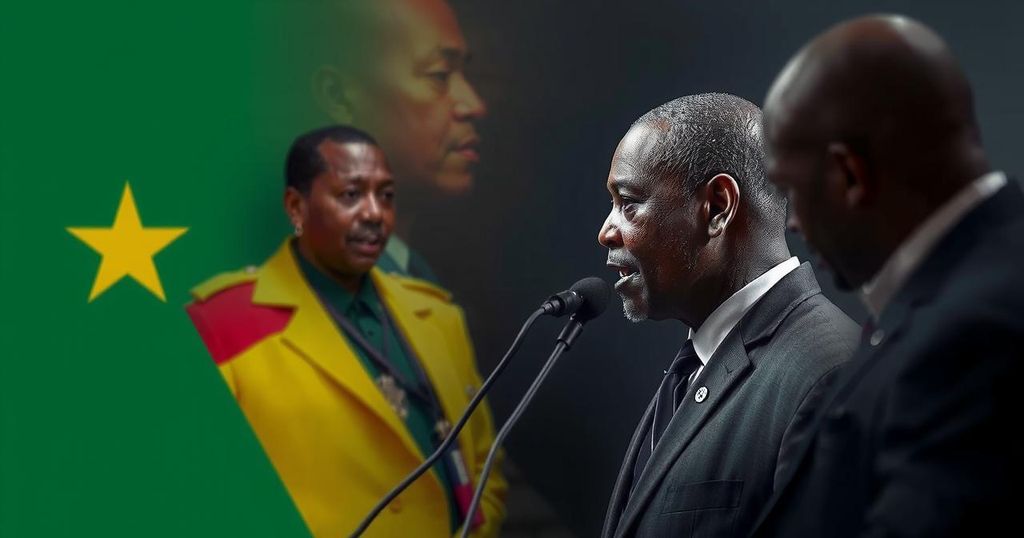Politics
AFRICA, AP, AP FOTO, CARLOS U, CARLOS UQUEIO, DANIEL CHAPO, DEMOCRACY, DURANTE LAS, ELEC, EN MAPUTO, FR, HUMAN RIGHTS, JOHANNESBURG, LA CAPITAL DE MOZAMBIQUE, LEBOMBO, LLAMAS, MAPUTO, MOZAMBIQUE, POLITICS, SOUTH AFRICA, SOUTHERN AFRICA, SOUTHERN AFRICAN DEVELOPMENT COMMUNITY, UNA, VE, VENANCIO MONDLANE, VIOLENCE
Jamal Walker
0 Comments
The Implications of Post-Election Violence in Mozambique for Southern Africa
Mozambique faces significant post-election violence following disputed results from the Oct. 9 elections, leading to at least 30 fatalities. This unrest raises concerns for Southern Africa regarding electoral integrity, regional trade, and historical political tensions. With South Africa closing its border to mitigate unrest, the economic impacts are notable, especially given Mozambique’s role in regional trade. The continuing instability could exacerbate migration and humanitarian crises, underscoring the need for concerted regional responses.
The recent post-election violence in Mozambique has raised significant concerns for Southern Africa, particularly following the disputed results of the Oct. 9 elections, where ruling party Frelimo’s candidate Daniel Chapo was declared the winner. The unrest, characterized by large-scale protests and clashes with police, has resulted in numerous fatalities, with at least 30 confirmed deaths. The situation is prompting discussions among regional leaders as they prepare for the upcoming Southern African Development Community summit. The political context highlights a troubling trend in Southern Africa, where Mozambique’s electoral disputes coincide with notable elections in neighboring countries. While nations like Botswana and South Africa have successfully held credible elections this year, Mozambique’s electoral integrity has been called into question. The European Union’s observer mission reported irregularities in the election process, including allegations of vote tampering. Historical patterns of disputed elections in the region, particularly in Zimbabwe, indicate systemic challenges that could destabilize the area further. Economically, Mozambique plays a critical role in Southern Africa’s trade network. The recent violence has led South Africa to close its border with Mozambique, disrupting vital trade routes. This closure has significant economic repercussions, costing South Africa’s economy an estimated R10 million ($555,177) per day. Given Mozambique’s mineral wealth and strategic logistics routes, regional stability is paramount for both local and neighboring economies, particularly in mineral transportation and trade. In addition to economic implications, political stability in Mozambique is intrinsically linked to the legacies of its past civil conflict. The ongoing conflicts and humanitarian crises, particularly in the Cabo Delgado region, have displaced large populations and left communities vulnerable. The interrelation between political turmoil and humanitarian issues could prompt further migration as Mozambicans seek stability and economic prospects in neighboring regions.
Mozambique has long had a tumultuous political history, particularly following its civil war. Since gaining independence, the country has struggled with political stability, with Frelimo’s rule often contested by opposition parties such as Renamo. Post-election violence has been a recurring issue, reflecting underlying tensions and discontent regarding electoral integrity. Following the country’s first multi-party elections in 1994, continuing allegations of voter suppression, electoral fraud, and mismanagement have plagued subsequent elections, fostering instability that threatens broader Southern African relations.
In conclusion, the recent post-election unrest in Mozambique highlights pressing concerns not only for the nation itself but also for the entire Southern African region. Electoral integrity, regional trade dynamics, and historical political struggles create a complex backdrop that threatens to undermine stability. As the region monitors the situation, proactive measures may be necessary to address the underlying issues of governance and ensure sustainable peace and economic cooperation moving forward.
Original Source: apnews.com




Post Comment